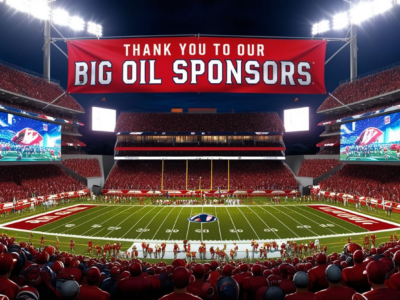More on the recent Pew poll and on debating the science
My colleague Steve Weissman writes well here about the recently released Pew poll on Americans’ beliefs about climate change. Like Steve, I find the most troubling statistics from the poll to be the plunging numbers of people who seem to believe the underlying science. This is from Pew’s write-up:
57% [of all respondents] think there is solid evidence that the average temperature on earth has been getting warmer over the past few decades. In April 2008, 71% said there was solid evidence of rising global temperatures.
Over the same period, there has been a comparable decline in the proportion of Americans who say global temperatures are rising as a result of human activity, such as burning fossil fuels. Just 36% say that currently, down from 47% last year.
I get why people’s assessment of the relative importance of taking action on climate change, as opposed to tackling other societal problems, may shift over time — even dramatically. And I more or less understand what we would need to do to counter those kinds of shifts.
But why would people’s views on the underlying facts change? Has there been an injection of especially credible contrary views on the science in the last six months? To me, it seems that if anything, scientific reports have gotten more insistent and consistent in their predictions about the serious risks we’re running. Or, when people (for economic or other reasons) decide that they no longer support regulation of climate change, do they avoid some type of cognitive dissonance by simultaneously determining that the problem isn’t really a problem?
Whatever the reason, these numbers suggest that we may have to backtrack from one of the dominant strains of pro-climate-regulation messaging of the last few years. Since perhaps the Fourth Assessment Report of the IPCC was published, it has been a tactical move to start conversations by characterizing the science as settled, and naysayers as outliers who need not be taken seriously. This has had the advantage of moving debate to questions of how, not whether, we should regulate. But the Pew poll suggests that this tactic increasingly leaves people behind whose support we may no longer afford to lose. Is it time for more climate campaigners to reengage with Fox News and friends on the science, in a serious way?
Reader Comments
4 Replies to “More on the recent Pew poll and on debating the science”
Comments are closed.






I think you are exactly right. Both the science and solutions are very complex. Both have unknowns. We have to engage. It doesn’t work to dismiss a skeptic with a hyperlink to the IPCC report.
A simple guess would be that public views have changed due to two cooler-than-expected summers (generally, across the country) in the face of a “global warming” label that is easier to connect with, on its face, than the more accurate descriptor “climate change.”
For example, http://online.wsj.com/article/SB125883405294859215.html?mod=WSJ_hps_MIDDLEThirdNews
What happened is that surge in belief in global warming came from Inconvenient Truth and Gore’s Nobel Prize, but these effects waned by now.
The people do not evaluate scientific evidence, they just look at their lives (so you cannot bullshit them on economy) when they can, and follow what media says in everything else (like global warming).